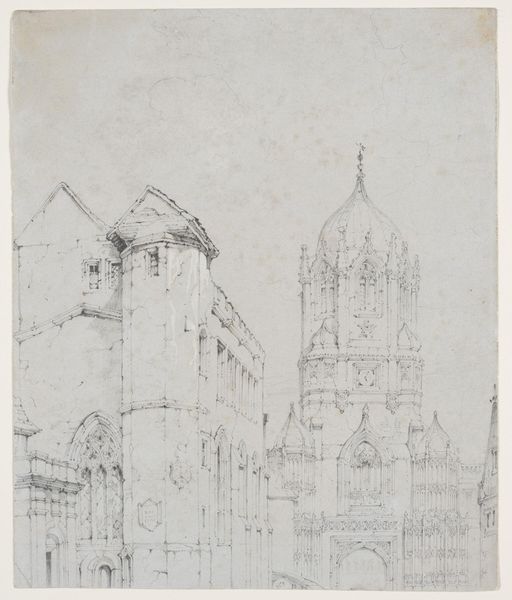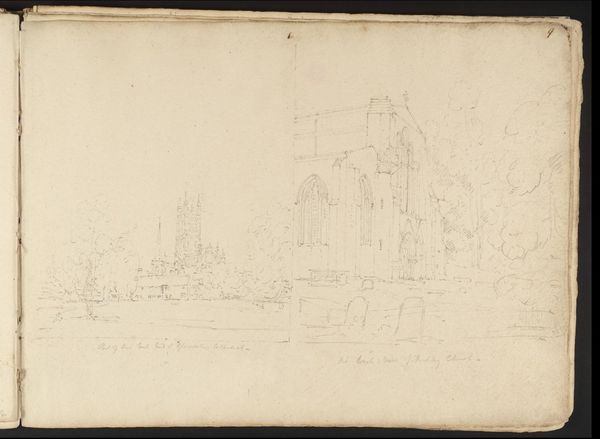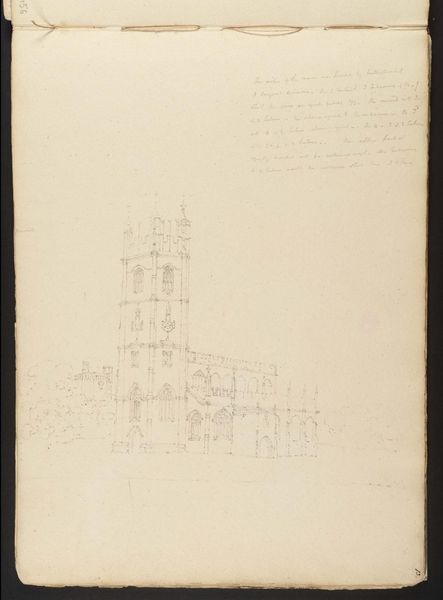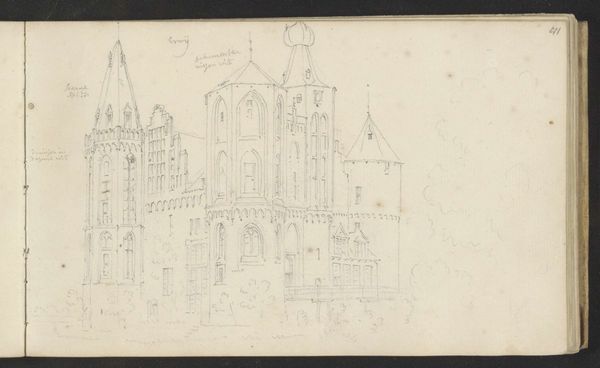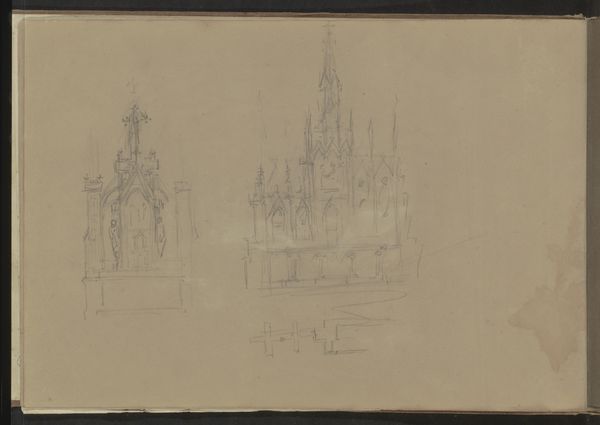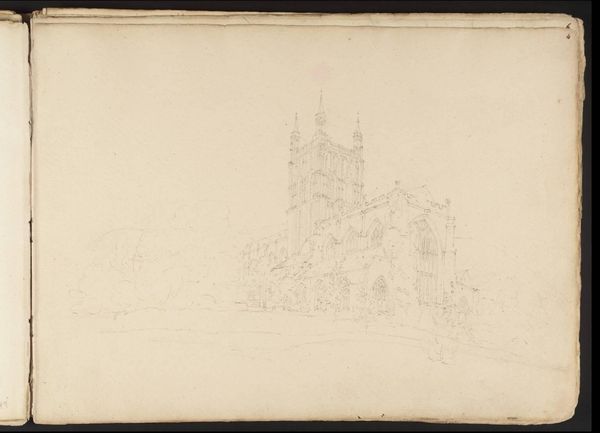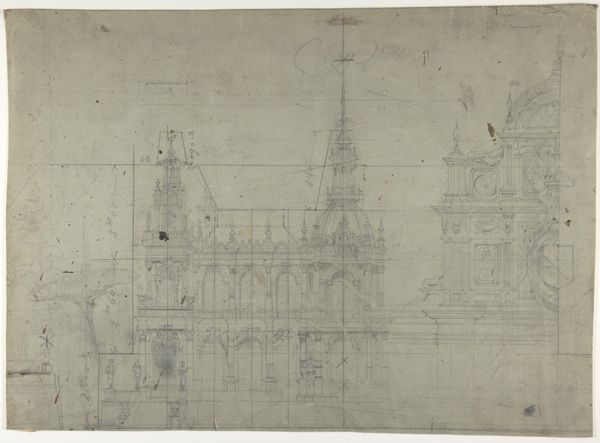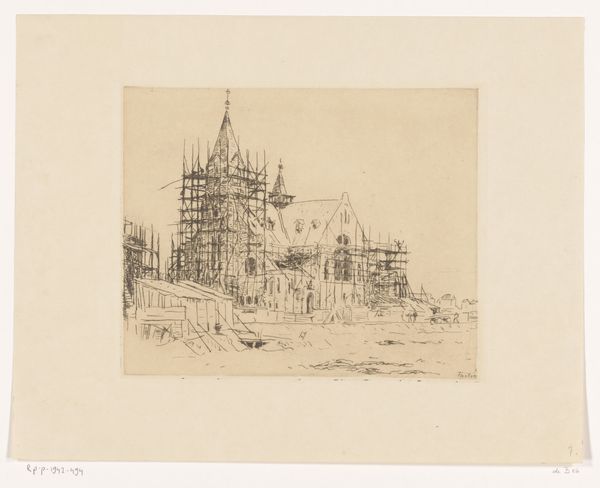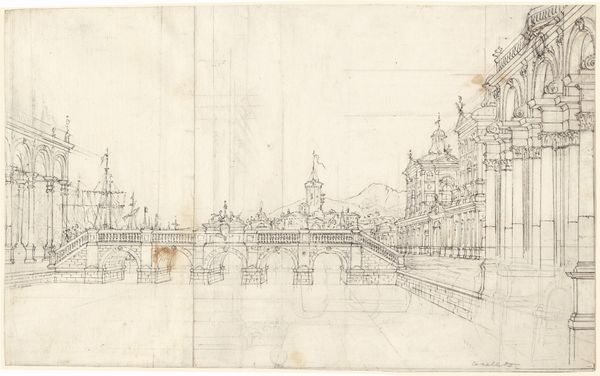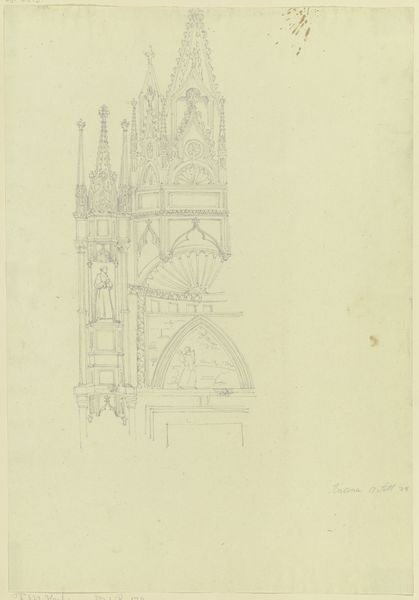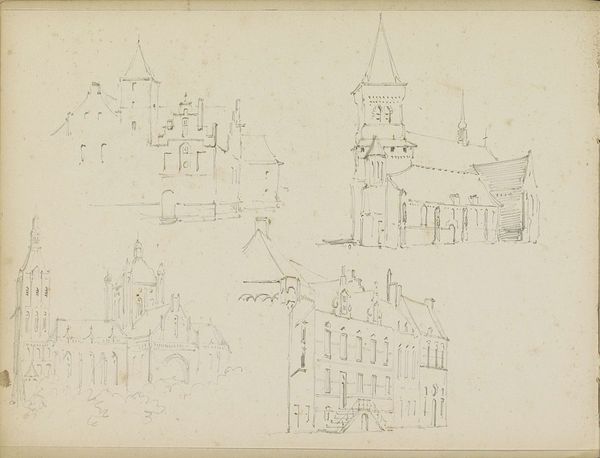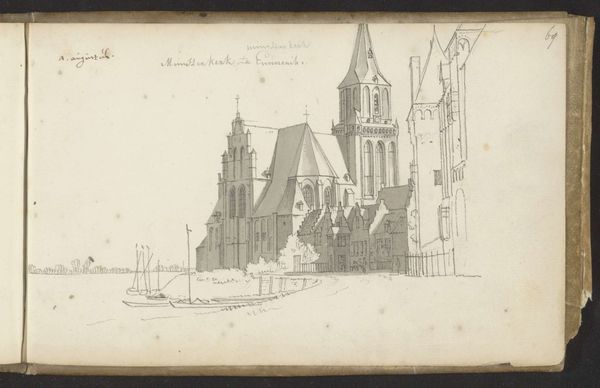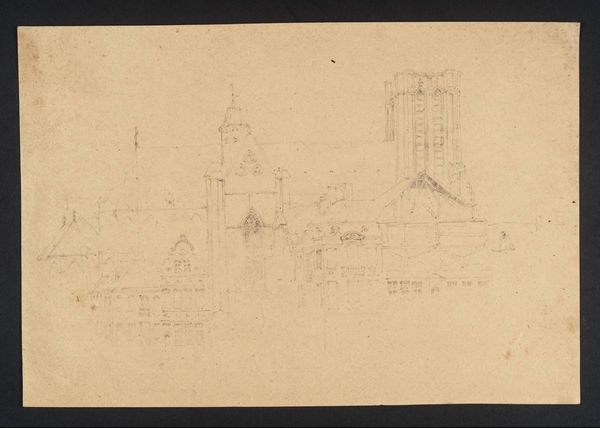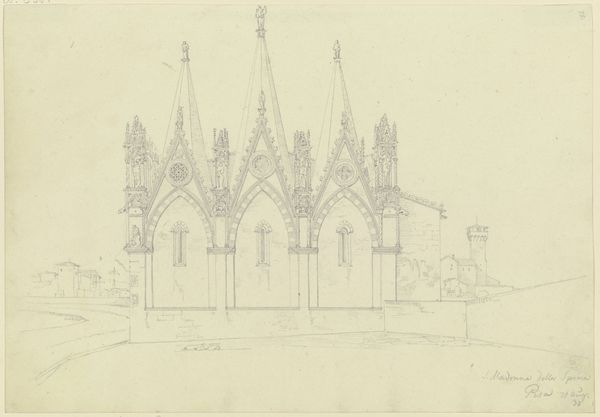
Church Facade (after the French?) 1826 - 1834
0:00
0:00
drawing, print, pencil, architecture
#
drawing
# print
#
landscape
#
etching
#
romanticism
#
pencil
#
cityscape
#
architecture
Dimensions: sheet: 10 3/16 x 11 7/8 in. (25.9 x 30.2 cm)
Copyright: Public Domain
Editor: So, this is William Frome Smallwood’s “Church Facade (after the French?)”, done sometime between 1826 and 1834. It looks like a pencil and etching, quite delicate. I'm really struck by the almost ghostly quality of the image. What do you see in this piece? Curator: I'm interested in the materiality of this work. The pencil and etching, mass-producible mediums, democratize the architectural subject, a church normally signifying established power. Was Smallwood questioning that power by choosing these methods of reproduction? Editor: That’s an interesting point. I hadn’t considered the materials in terms of social commentary. Curator: Look closely. It’s “after the French?” This "copy" produced by Smallwood would've circulated, becoming a commodity itself. We should question its own claim to authenticity and the context of artistic production in his time. Editor: So, it's not just the image of the church but also the method of its creation that carries meaning? Curator: Exactly. Consider also, who had access to pencils, to etching equipment, to art education in 1830s England? The very act of creation speaks volumes. Editor: It really changes how I see the piece. It’s less about the grandeur of the church itself, and more about how the image was made and consumed. Curator: Precisely. Think of the labor involved in both the original building and its reproduction through etching and drawing. That process of consumption is worth considering further. Editor: I’m going to look at architectural drawings completely differently from now on! Curator: I'm glad this piece has sparked a fresh awareness about art and materialism.
Comments
No comments
Be the first to comment and join the conversation on the ultimate creative platform.
